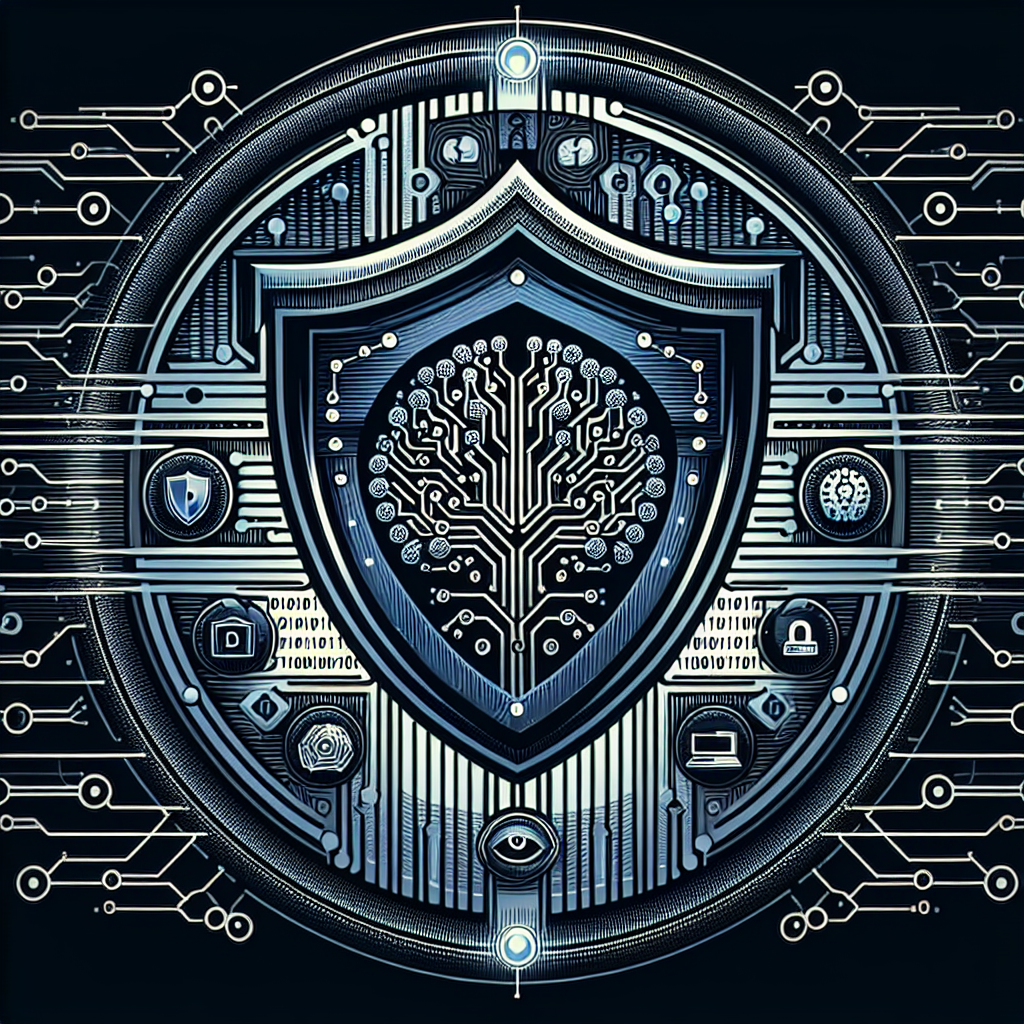Artificial intelligence (AI) has revolutionized many industries, and cybersecurity is no exception. With the increasing sophistication of cyber threats, traditional security measures are no longer enough to protect sensitive data and systems. AI is now being used to enhance cybersecurity measures, providing a more robust defense against cyber attacks. In this article, we will explore how AI is transforming cybersecurity and why it is considered the next frontier in digital protection.
AI in Cybersecurity: How It Works
AI refers to the simulation of human intelligence in machines that are programmed to think and act like humans. In the realm of cybersecurity, AI is used to analyze vast amounts of data and identify patterns and anomalies that may indicate a cyber attack. By leveraging machine learning algorithms, AI can detect and respond to threats in real-time, helping organizations stay one step ahead of cyber criminals.
One of the key ways AI is used in cybersecurity is through the use of behavior analytics. By analyzing user behavior and network traffic, AI can detect unusual patterns that may indicate a potential security breach. For example, if an employee suddenly starts accessing sensitive data at odd hours or from an unusual location, AI can flag this activity as suspicious and alert security teams to investigate further.
Another way AI is used in cybersecurity is through the use of predictive analytics. By analyzing historical data and trends, AI can predict potential threats and vulnerabilities before they occur. This allows organizations to proactively address security issues and strengthen their defenses against cyber attacks.
AI is also being used to automate routine security tasks, such as patch management and vulnerability scanning. By offloading these tasks to AI-powered systems, organizations can free up their security teams to focus on more strategic initiatives and respond more quickly to emerging threats.
The Benefits of AI in Cybersecurity
There are several benefits to using AI in cybersecurity. One of the main advantages is the ability to detect and respond to threats in real-time. Traditional security measures rely on static rules and signatures, which may not be able to keep up with the constantly evolving nature of cyber threats. AI, on the other hand, can adapt and learn from new data, allowing it to detect and respond to emerging threats more effectively.
AI also has the ability to scale and handle large volumes of data more efficiently than humans. With the increasing amount of data generated by organizations, it is becoming increasingly difficult for human analysts to sift through all the information and identify potential threats. AI can process this data at a much faster rate and provide insights that would be impossible for humans to uncover on their own.
Furthermore, AI can help organizations reduce false positives and improve the accuracy of their security alerts. By leveraging machine learning algorithms, AI can learn from past incidents and fine-tune its detection capabilities to minimize false alarms. This not only helps security teams focus on genuine threats but also reduces the likelihood of alert fatigue, where security teams become overwhelmed by the sheer volume of alerts generated by traditional security tools.
Challenges and Considerations
While AI offers many benefits in cybersecurity, there are also challenges and considerations that organizations need to be aware of. One of the main challenges is the potential for AI to be exploited by cyber criminals. As AI becomes more sophisticated, there is a risk that cyber criminals may use AI-powered tools to launch more targeted and intelligent attacks. Organizations need to be vigilant and constantly update their security measures to stay ahead of these evolving threats.
Another challenge is the lack of transparency and interpretability in AI algorithms. As AI systems become more complex, it can be difficult for security teams to understand how these systems arrive at their conclusions. This lack of transparency can make it difficult to trust AI-powered security tools and may hinder their adoption in some organizations.
Furthermore, there is a shortage of skilled professionals who are trained in AI and cybersecurity. Organizations need to invest in training and development programs to ensure that their security teams have the necessary skills to leverage AI effectively in their cybersecurity strategies.
FAQs
Q: How is AI different from traditional security measures?
A: Traditional security measures rely on static rules and signatures to detect and respond to threats, while AI uses machine learning algorithms to analyze data and identify patterns and anomalies that may indicate a potential security breach.
Q: Can AI help prevent cyber attacks?
A: While AI cannot prevent all cyber attacks, it can help organizations detect and respond to threats in real-time, reducing the impact of cyber attacks and minimizing the likelihood of a successful breach.
Q: How can organizations leverage AI in their cybersecurity strategies?
A: Organizations can leverage AI in their cybersecurity strategies by using AI-powered tools to analyze user behavior, predict potential threats, automate routine security tasks, and reduce false positives in their security alerts.
Q: What are some best practices for implementing AI in cybersecurity?
A: Some best practices for implementing AI in cybersecurity include investing in training and development programs for security teams, ensuring transparency and interpretability in AI algorithms, and staying vigilant against potential exploits by cyber criminals.
In conclusion, AI is transforming cybersecurity and is considered the next frontier in digital protection. By leveraging machine learning algorithms and behavior analytics, organizations can detect and respond to threats in real-time, predict potential vulnerabilities, and automate routine security tasks. While there are challenges and considerations associated with using AI in cybersecurity, the benefits far outweigh the risks. With the increasing sophistication of cyber threats, AI is becoming an indispensable tool for organizations looking to strengthen their cybersecurity defenses and protect their sensitive data and systems.

